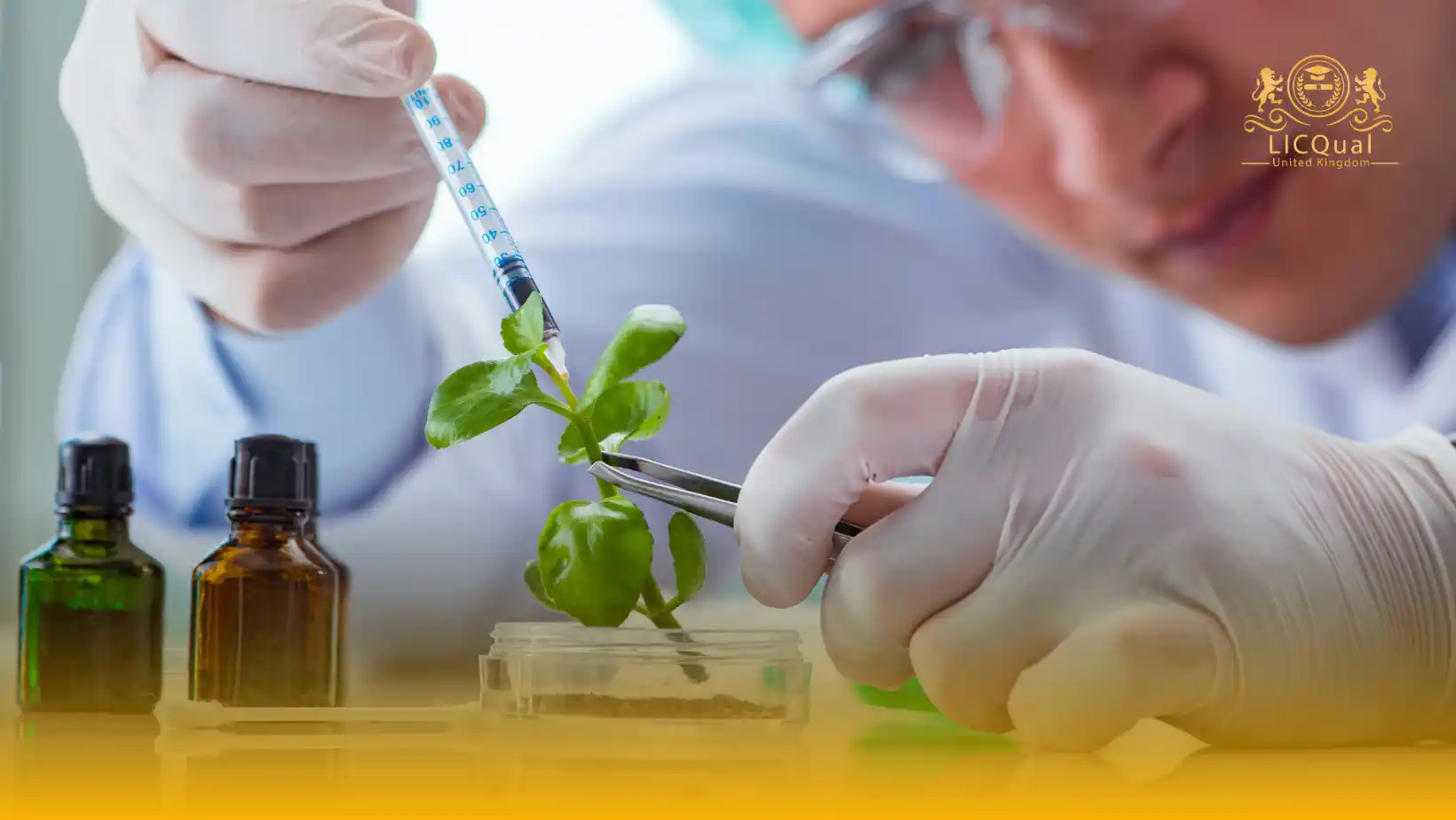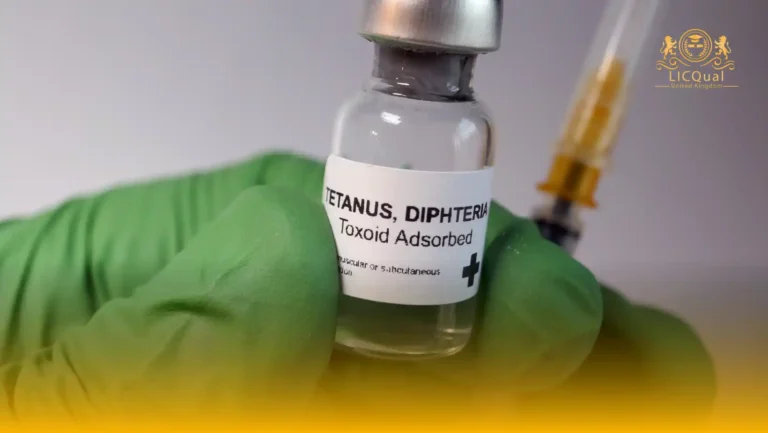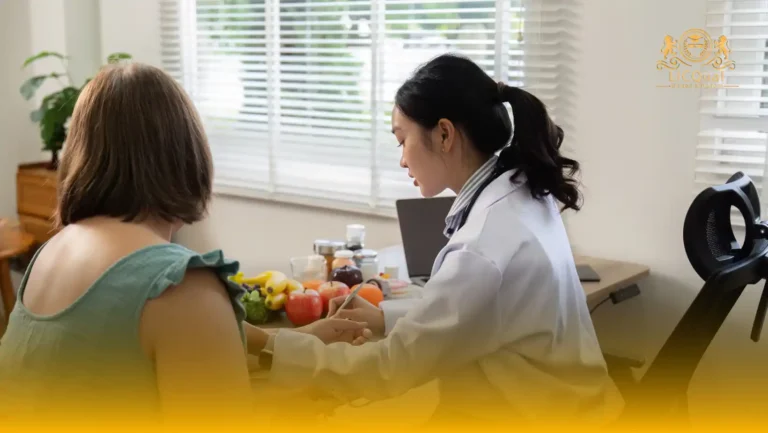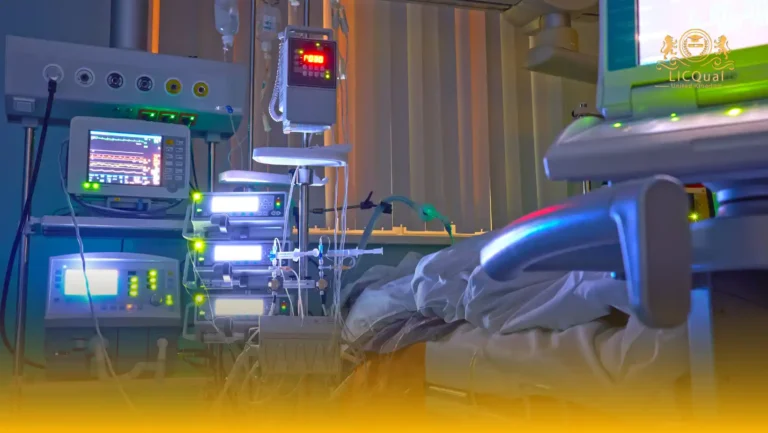The LICQual Level 3 Diploma in Medicinal Chemistry (Dip Medicinal Chemistry) , offered by LICQual, is a specialized qualification designed for learners who wish to gain a strong foundation in the principles and applications of medicinal chemistry. This diploma explores the relationship between chemistry and medicine, focusing on drug design, synthesis, development, and the role of chemistry in improving healthcare solutions.
This qualification is particularly valuable for learners who aim to enhance their career prospects, expand their knowledge, and strengthen their Continuing Professional Development (CPD) within the pharmaceutical, biotechnology, or healthcare sectors. By combining theoretical knowledge with applied understanding, the programme equips learners with the essential skills needed to progress in scientific research, pharmaceutical development, and related professional roles.
The course covers a wide range of subject areas, including organic and inorganic chemistry, pharmacology basics, drug interactions, molecular design, and laboratory techniques. This ensures learners develop both the scientific expertise and critical thinking skills required to contribute effectively to medicinal chemistry research and practice.
Centres delivering this diploma must have competent and qualified staff, alongside modern facilities, laboratory resources, and high-quality study materials to support learner development. These requirements ensure that learners receive effective training, benefit from professional guidance, and achieve success in their academic and career goals.
The Level 3 Diploma in Medicinal Chemistry provides a recognized pathway for individuals looking to build a career in science, pharmaceuticals, or healthcare innovation, while also contributing to their professional growth and future opportunities.
Course Overview
Qualification Title
LICQual Level 3 Diploma in Medicinal Chemistry (Dip Medicinal Chemistry)
Total Units
6
Total Credits
60
GLH
240
Qualification #
LICQ2201175
Qualification Specification
To enroll in the LICQual Level 3 Diploma in Medicinal Chemistry (Dip Medicinal Chemistry) , applicants must meet the following criteria:
|
Qualification# |
Unit Title |
Credits |
GLH |
|---|---|---|---|
|
LICQ2201175-1 |
Fundamentals of Medicinal Chemistry |
10 |
40 |
|
LICQ2201175-2 |
Organic and Inorganic Chemistry in Medicine |
10 |
40 |
|
LICQ2201175-3 |
Drug Design and Development |
10 |
40 |
|
LICQ2201175-4 |
Pharmacology and Mechanism of Action |
10 |
40 |
|
LICQ2201175-5 |
Laboratory Techniques and Experimental Practices |
10 |
40 |
|
LICQ2201175-6 |
Professional Development and Ethics in Medicinal Chemistry |
10 |
40 |
By the end of this course, learners will be able to:
Unit 1: Fundamentals of Medicinal Chemistry (10 Credits, 40 GLH)
By the end of this unit, learners will be able to:
- Explain the fundamental principles of medicinal chemistry and molecular interactions.
- Identify the role of chemical structures in drug function and therapeutic applications.
- Analyse the importance of chemistry in modern healthcare and drug discovery.
- Apply basic medicinal chemistry concepts to real-world scenarios.
Unit 2: Organic and Inorganic Chemistry in Medicine (10 Credits, 40 GLH)
By the end of this unit, learners will be able to:
- Demonstrate knowledge of key organic and inorganic chemistry principles relevant to medicine.
- Explain how chemical reactions and structures influence drug behaviour.
- Analyse the applications of organic and inorganic compounds in pharmaceuticals.
- Apply chemical knowledge to support drug design and development.
Unit 3: Drug Design and Development (10 Credits, 40 GLH)
By the end of this unit, learners will be able to:
- Explain the process of drug design, including structure-activity relationships.
- Analyse the stages of drug development from discovery to pre-clinical testing.
- Evaluate methods used in molecular modelling and rational drug design.
- Apply theoretical principles to hypothetical drug development projects.
Unit 4: Pharmacology and Mechanism of Action (10 Credits, 40 GLH)
By the end of this unit, learners will be able to:
- Explain pharmacokinetics, pharmacodynamics, and drug-receptor interactions.
- Analyse biochemical mechanisms underlying drug action.
- Evaluate factors affecting drug efficacy, metabolism, and toxicity.
- Apply pharmacological knowledge to case studies and real-world scenarios.
Unit 5: Laboratory Techniques and Experimental Practices (10 Credits, 40 GLH)
By the end of this unit, learners will be able to:
- Demonstrate safe and effective use of laboratory equipment and techniques.
- Design and conduct experiments following good laboratory practices (GLP).
- Analyse experimental data accurately and draw valid scientific conclusions.
- Apply laboratory findings to support medicinal chemistry research and development.
Unit 6: Professional Development and Ethics in Medicinal Chemistry (10 Credits, 40 GLH)
By the end of this unit, learners will be able to:
- Demonstrate commitment to Continuing Professional Development (CPD).
- Apply ethical principles and scientific integrity in professional practice.
- Reflect on personal skills, strengths, and areas for improvement.
- Design a professional development plan aligned with career progression in medicinal chemistry.
The LICQual Level 3 Diploma in Medicinal Chemistry (Dip Medicinal Chemistry) is designed for learners who want to specialize in drug design, pharmaceutical chemistry, and advanced healthcare innovation. This internationally accredited qualification is ideal for pharmacists, scientists, healthcare professionals, graduates, and policy makers who want to strengthen their expertise in medicinal chemistry and contribute to global drug discovery. Whether you are beginning your career or advancing into leadership roles, this diploma equips you with the skills, recognition, and confidence to succeed in the growing field of medicinal chemistry.
1. Pharmacists and Pharmacy Technicians
- Pharmacists aiming to specialize in medicinal chemistry and drug design
- Pharmacy technicians seeking accredited qualifications in pharmaceutical chemistry and medication safety
- Professionals wanting to reduce risks in drug formulation and therapeutic applications
- Staff preparing for roles in hospital research units and pharmaceutical companies
- Learners interested in international standards for medicinal chemistry and drug development
2. Scientists and Research Professionals
- Researchers focusing on molecular biology, drug discovery, and pharmaceutical innovation
- Professionals seeking accredited qualifications in medicinal chemistry and advanced drug design
- Staff aiming to strengthen compliance with global pharmaceutical research standards
- Individuals preparing for careers in laboratory research and clinical trials
- Scientists interested in applying chemistry to healthcare advancements
3. Healthcare Professionals Focused on Advanced Medicine
- Doctors and practitioners specializing in pharmaceutical applications in patient care
- Professionals seeking accredited qualifications in advanced drug therapies
- Staff wanting to enhance evidence‑based practice in medicinal chemistry
- Individuals aiming to expand career opportunities in hospitals and research facilities
- Healthcare workers preparing for leadership roles in advanced pharmaceutical practice
4. Graduates in Life Sciences and Medicine
- Students with degrees in medicine, pharmacy, or chemistry
- Fresh graduates seeking specialized training in medicinal chemistry
- Learners aiming to boost employability with accredited qualifications
- Individuals preparing for careers in drug discovery and healthcare innovation
- Graduates interested in international pharmaceutical and medicinal chemistry standards
5. Pharmaceutical Industry Professionals
- Employees working in drug manufacturing and medicinal product development
- Clinical trial coordinators seeking knowledge of pharmaceutical medication protocols
- Staff aiming to strengthen compliance with global drug safety regulations
- Professionals preparing for leadership roles in pharmaceutical research and development
- Individuals wanting to integrate medicinal chemistry into drug development processes
6. Policy Makers and Regulatory Authorities
- Professionals working in healthcare policy and regulation
- Staff involved in drug approval and compliance processes for pharmaceutical products
- Individuals aiming to strengthen expertise in international medicinal chemistry standards
- Learners preparing for advisory or consultancy roles in healthcare quality
- Policy makers seeking deeper knowledge of medicinal chemistry safety frameworks
7. Career Changers Entering Medicinal Chemistry
- Professionals from other industries transitioning into pharmaceutical chemistry and drug design
- Individuals seeking a structured pathway into drug discovery and development
- Learners aiming to gain practical, job‑ready skills quickly
- Career changers motivated by opportunities in medicinal chemistry and healthcare innovation
- Those wanting internationally recognized qualifications to boost employability
Centres delivering the Level 3 Diploma in Medicinal Chemistry (Dip Medicinal Chemistry) must meet strict standards to ensure high-quality training, learner success, and compliance with professional best practices. Key requirements include:
- Qualified and Competent Staff: Tutors, assessors, and internal quality assurers must hold relevant qualifications and possess professional experience in medicinal chemistry, pharmaceuticals, or related scientific fields.
- Learning Resources: Centres must provide access to up-to-date study materials, laboratory equipment, research resources, and digital learning platforms that facilitate effective learning.
- Laboratory and Practical Facilities: Safe, fully equipped laboratories and practical workspaces must be available to support hands-on learning and experimental techniques.
- Assessment and Quality Assurance: Centres must implement robust assessment procedures, internal verification systems, and secure record-keeping to maintain credibility and transparency.
- Commitment to CPD: Teaching staff must actively engage in Continuing Professional Development (CPD) to ensure knowledge remains current and industry-relevant.
- Policies and Procedures: Centres should have clear policies covering equality, diversity, safeguarding, and learner support, fostering an inclusive and professional learning environment.
- Technology and Accessibility: Centres must provide learners with access to IT facilities, e-learning tools, and online support for blended or distance learning delivery.
By meeting these requirements, centres can ensure learners receive a professional, high-quality education, gain practical skills, and successfully progress in the field of medicinal chemistry and pharmaceuticals.
Assessment and Verification
All units within this qualification are subject to internal assessment by the approved centre and external verification by LICQual. The qualification follows a criterion-referenced assessment approach, ensuring that learners meet all specified learning outcomes.
To achieve a ‘Pass’ in any unit, learners must provide valid, sufficient, and authentic evidence demonstrating their attainment of all learning outcomes and compliance with the prescribed assessment criteria. The Assessor is responsible for evaluating the evidence and determining whether the learner has successfully met the required standards.
Assessors must maintain a clear and comprehensive audit trail, documenting the basis for their assessment decisions to ensure transparency, consistency, and compliance with quality assurance requirements.







